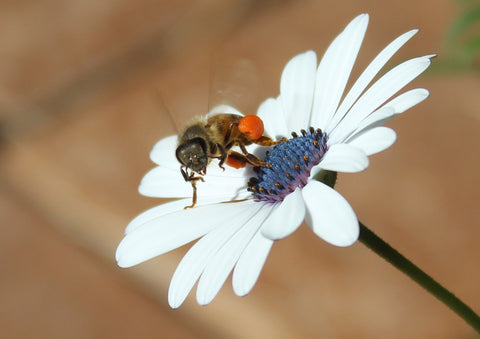As you know, we are passionate about creating a chemical free home for our family and honey bees. Our free organic seeds for you garden is one solution to reducing chemicals.
Today there is an article in the Australian newspaper that quotes research to back our fears of chemicals in the home is effecting the bees, as much as crop chemcials:
This article is from the June 1 issue of The Australian Digital Edition. visit http://www.theaustralian.com.au/.
Household pesticides blamed for crash in bee populations
Australian - Wednesday, 1 Jun 2016 - Page 10
"Common household pesticides are infiltrating bees’ diets, potentially accelerating the catastrophic global decline of honeybees.
US scientists have found that even in agricultural areas, bees collect the vast majority of their pollen from plants other than crops, absorbing a cocktail of urban chemicals in the process.
The finding, published in the journal Nature Communications, puts another suspect in the frame for the dramatic crash of bee populations over the past decade. While the die-off has slashed honey production, researchers are far more concerned about the broader impacts.
Pollination by honeybees underpins more than one-third of global food supplies, scientists have estimated, with no other creature playing a more significant role in fruit and vegetable production. Albert Einstein reputedly predicted that mankind would not survive half a decade beyond the extinction of bees.
Theories about what has sparked the decline range from parasites and pollution to poor nutrition. Many blame pesticides, with suspicion focusing on “neonicotinoids” — cereal crop insecticides which are toxic to bees.
The new study collected pollen from hives near Indiana cornfields , where neonicotinoids are routinely used. But the researchers identified residue from eight other classes of pesticides, with the highest concentrations coming from pyrethroids — chemicals used to kill pests, typically in residential areas.
Pollen from the three study sites also contained DEET, the active ingredient in most insect repellents. “Agricultural chemicals are only part of the problem,” said Christian Krupke, an entomologist with nearby Purdue University. “Homeowners and urban landscapes are big contributors , even when hives are directly adjacent to crop fields.”


